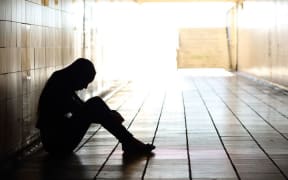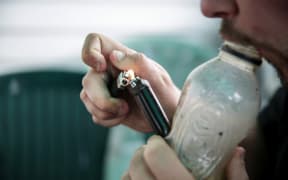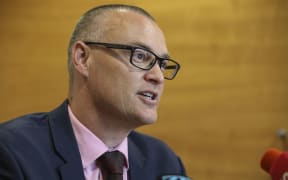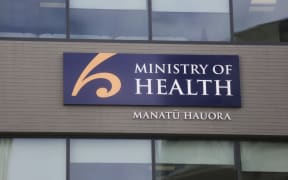The 21-member working group set up to advise the government's response to the mental health inquiry has been replaced with several more working groups.
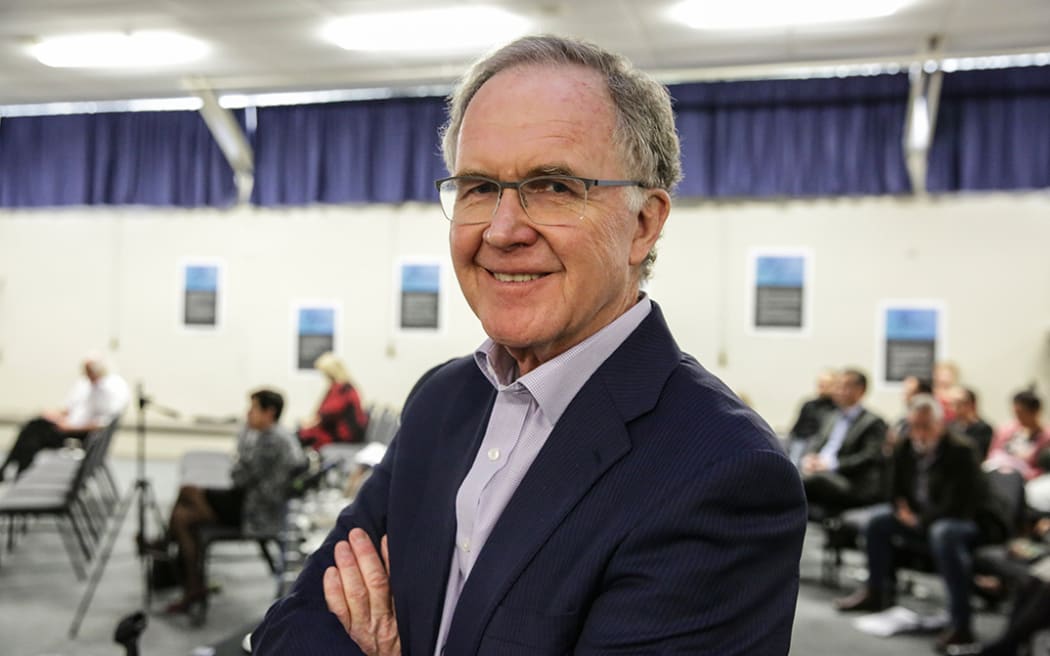
Former Health and Disability Commissioner Ron Paterson led the inquiry into New Zealand's mental health and addiction services. Photo: RNZ / Richard Tindiller
But mental health advocates have said the process runs the risk of unnecessarily repeating the inquiry.
The 200-page mental health inquiry report was handed to the government in November. The inquiry panel held more than 400 meetings across New Zealand and had about 5000 submissions.
Robyn Shearer, deputy director general of mental health and addiction, said the Mental Health and Addiction Health Sector Leadership Group (HSLG) was put on hold following criticism of its make-up.
"As the ministry has adopted the hub and spoke model, the group will cease in its role."
The hub and spoke model - which has one central hub, co-ordinated by the Ministry of Health, and nine "spokes" based on key inquiry recommendations - was first proposed in a 14 December email.
The structure was to be co-ordinated by a small co-ordination group, covering lived experience, family-whānau, Māori, Pasifika, NGOs, primary health organisations, and a DHB representative.
"This structure would also include nine working groups, dedicated to responding to each of the Inquiry report's themes," acting deputy director general of mental health and addiction Maree Roberts said in an email to stakeholders.
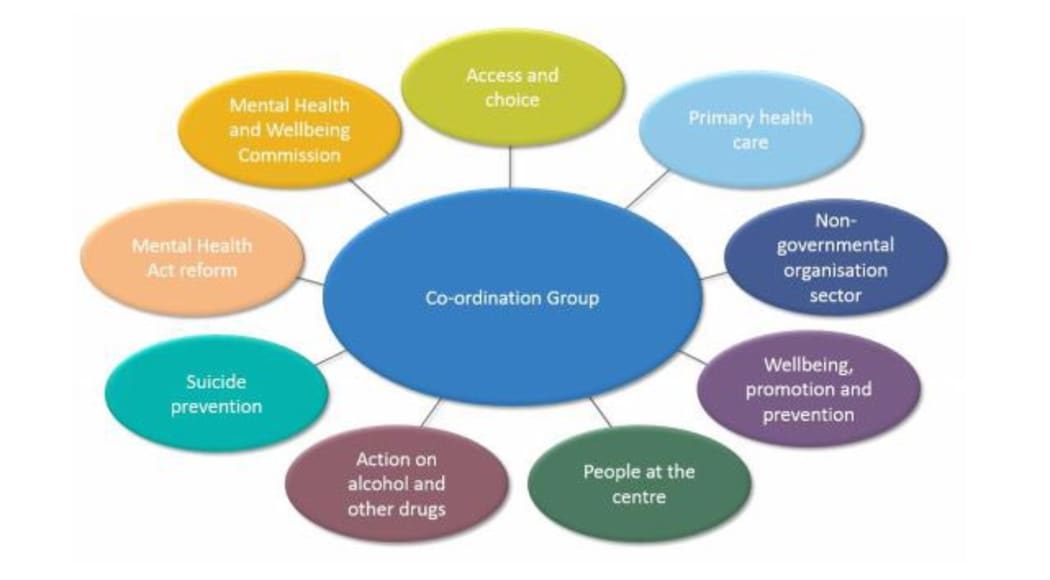
The mental health inquiry hub and spoke model Photo: Supplied
The groups would "be responsible not only for feeding into advice to government, but for providing leadership and advice on implementation of changes and improvements across the health and social system".
The email reminded readers that the government would formally respond to the inquiry in March 2019 and that the Ministry of Health was working to provide advice.
Ms Shearer, who has recently joined the Ministry of Health, said the leadership group was initially created to help the Ministry interact with key stakeholders.
"It was never intended to be the ministry's main mechanism for feedback following the Inquiry's report.
"The group's primary role in this time was to assist the ministry in planning its engagement approach following the inquiry's release."
However, the December email from Ms Roberts outlining the group's approach showed it had a significant role in gathering feedback.
The first phase was to seek feedback and inform government.
The email suggested hosting small workshops with the public.
A later email from Ms Roberts confirmed Māori hui and national forums - about the themes of the mental health inquiry - would go ahead.
Phase two for the group would involve providing advice on implementing the recommendations between March and June 2019.
This would begin after the government officially responded to the inquiry in March.
In a separate December email, Ms Roberts raised the "risk of repeating the inquiry process" and said some people wanted "a call for action, not more talking".
"Some of the feedback highlighted that the ministry already has enough material, opinions and feedback on issues so further engagement will need to be managed well to avoid potentially frustrating the community."
'Haven't you spent seven months doing that?'
Mental Health Foundation chief executive Shaun Robinson raised concerns.
"Part of our feedback was you have to be really clear what it is you're asking people, otherwise this could look like the inquiry is just carrying on. When do we stop talking and start doing?
"I kind of thought, 'Well, you know, I did tell you!' So it didn't surprise me at all when they said they were going back to the drawing board."
It did not adequately represent Māori and people who lived with mental distress, he said.
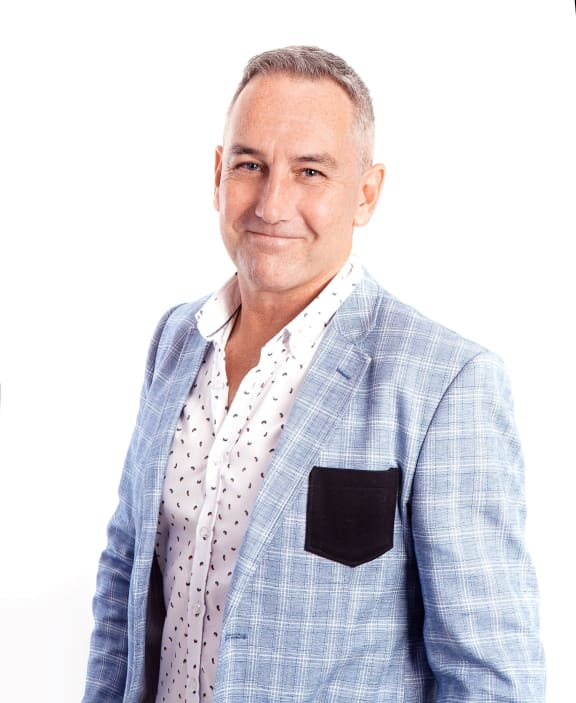
Mental Health Foundation chief executive Shaun Robinson. Photo: Supplied / Mental Health Foundation
"I just put it down to the learning curve from the ministry in re-engaging with these issues."
Mr Robinson said the ministry made a few mistakes in the first steps because they "literally did not have the people".
The foundation did not know who was on the new hub and spoke model but Mr Robinson expected they would still be participating.
He said the replacement structure was "okay" but was concerned that there was no specific group to address Māori mental health.
"I actually think there needs to be some specific mechanism to capture the aspirations and needs and interaction with Māori through the whole process."
There was also confusion among those in the mental health sector about why the government needed to seek more answers when that was the whole purpose of the inquiry.
"I have to admit, when Jacinda Ardern first said 'well, we need to see what people think', I thought 'well haven't you spent seven months doing that'?" Mr Robinson said.
"But there are some pretty significant and far-reaching changes suggested in the inquiry report. If you want to really make those happen, you have to be quite careful."
